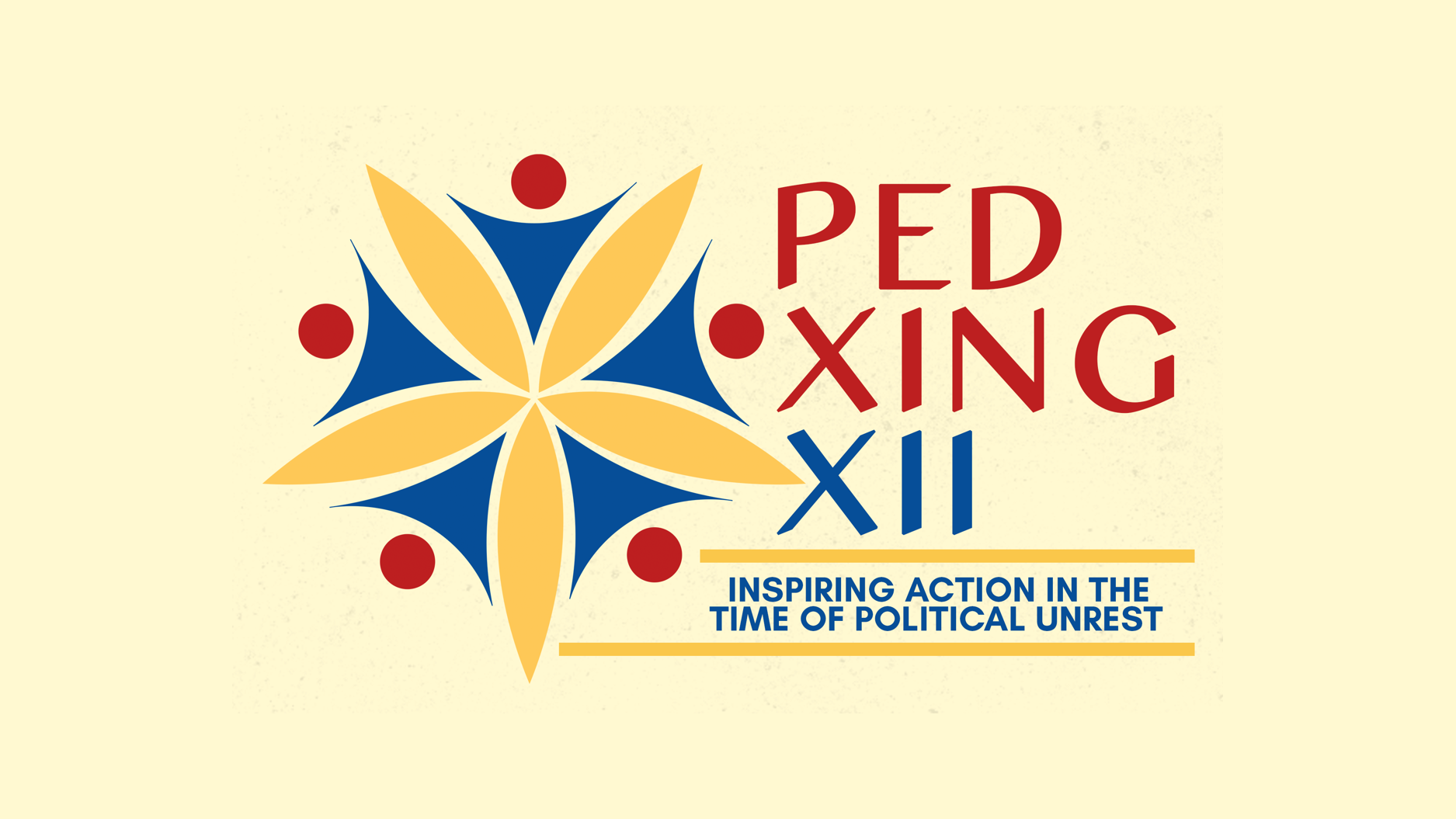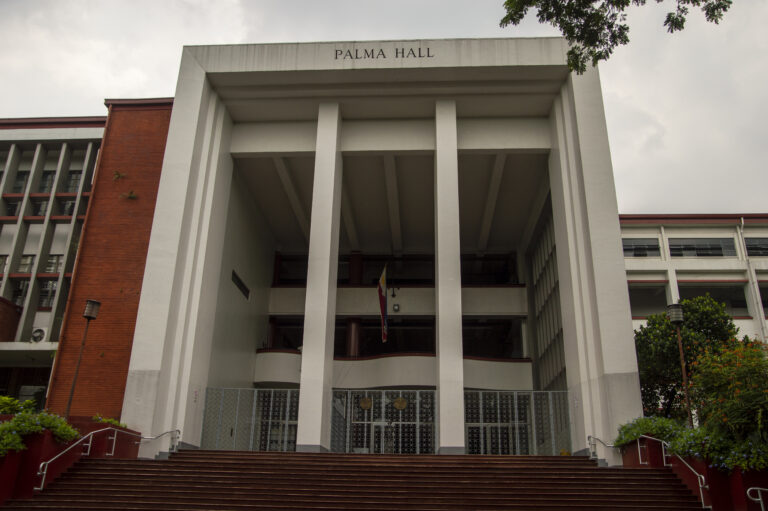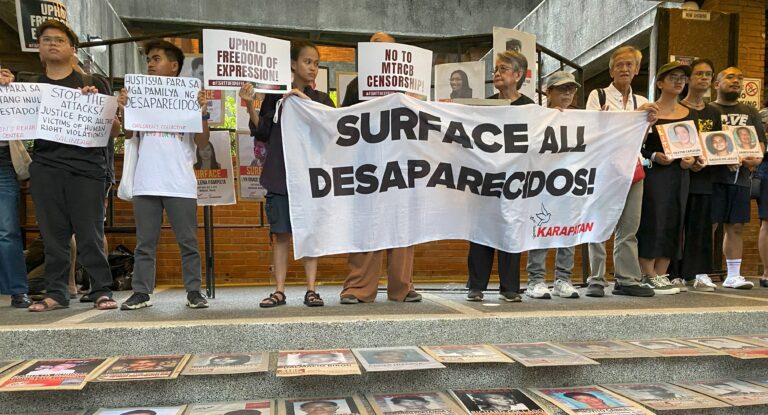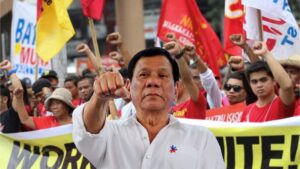
When Filipinos hear the name “Richard Poon,” classic love song covers, television performances, and memes involving liver spread would probably come to mind. Last May 18, however, the staunch Duterte supporter made an unfortunate addition to the things associated with his name.
Red-tagger.
In a Facebook post containing anonymous and unsubstantiated testimony, Poon proceeded to red-tag “Ped Xing XII,” an annual politics camp conducted by the University of the Philippines Political Society (UP POLSCi).
He then called the attention of prominent red-taggers such as Lorraine Badoy, Antonio Parlade, and the National Task Force to End Local Communist Armed Conflict (NTF-ELCAC) itself, thus putting the lives of the participants and the organization’s members at risk.
When I asked UP POLSCi President Kyla Hernandez what went through her mind upon seeing Poon’s dangerous post, one word encapsulates her answer: Concern.
“The first thing that really came to mind was safeguarding the participants and our members’ safety and security since we are accountable to them,” she said.
Echoing her sentiments are Ped Xing XII Officer-in-charge Jeman Malibiran and UP POLSCi Vice President for Education, Research, and Training Adrian Gache.
Malibiran points out that this is not the first time a student organization within UP has experienced red-tagging. The fact that Ped Xing XII’s participants are all high school students only raises the stakes. Meanwhile, Gache expresses both shock and disappointment while considering the tumultuous national political environment.
It is no secret that the Duterte administration has weaponized red-tagging to silence dissent and produce a “chilling effect.” Under the bloody regime, many surveilled, harassed, or slain activists, critics, and civilians have been previously red-tagged.
Contrary to the claims in Poon’s post, Ped Xing XII was never a vehicle for “unbiased hatred” or brainwashing of the youth. It is an annually organized camp, conference, and competition for Junior High and Senior High School students that aims to introduce them to political science and the other social sciences.
Why is it called “Ped Xing,” you may ask?
“Ped Xing, pagtawid. Nakikita ang Ped Xing sa lansangan. It is there to prove that politics is not limited to intellectual circles or the academe’s ivory tower — it is for the ordinary pedestrian,” Malibiran attests.
Ped Xing XII was held last May 8, 9, and 15 with the theme, “Inspiring Action in the Time of Political Unrest.” This year’s program focused on amplifying youth voices and helping them take strong and well-defined stances on pressing issues. Speakers for the event consisted of esteemed individuals such as Professor Maria Ela Atienza from the UP Department of Political Science, Congresswoman Sarah Elago, Journalist Lian Buan, Human Rights Lawyer Chel Diokno, and Vice President Leni Robredo.
“At no instance during the event did we advocate “unbiased hatred.” What we do advocate is critical thinking; we allow and encourage our participants to come up with opinions for themselves. We understand that they can come to different conclusions,” asserts Gache.
Hernandez adds that critical analysis and participation do not necessarily entail hatred towards any particular person or entity. As Ped Xing is also output-based, the organizers hope for the participants to deepen and enrich their understanding of Philippine politics and society by partaking in various activities. These include the digital poster contest that was the subject of Poon’s red-tagging.
“Ped Xing is not driven by normative statements; our focus is on the agency of the campers. We want to show them both the formal and informal avenues towards political participation,” says Malibiran.
When I asked the trio to address the allegation of Ped Xing organizers saying “mas brutal, mas maganda (more brutal is better)” to a digital poster contest participant, they gave an unequivocal answer.
“It’s completely false.”
Falsehoods, misleading information, and unfounded claims are typical of social media posts published for red-tagging purposes. No wonder Badoy and Parlade have both experienced being suspended or restricted on Facebook.
Aside from smearing Ped Xing’s organizers, the anonymous testimony in Poon’s post also suggested that involving children in politics is a “no-no” because of their “gullibility” and urged the government to conduct “screening” within universities.
“Our young students should not be barred from participating in politics because they are already exposed to it on a daily basis. Bakit pa hahadlangan ang kabataan kung may kakayahan at karapatan silang mag-engage?” Hernandez argues.
Recently, UP POLSCi conducted a webinar that discussed the political and ideological divide between the older and younger generations in Philippine society. Hernandez could not help but feel disappointed that that same divide has manifested itself via Poon’s red-tagging.
Under Duterte’s rule, being red-tagged has become a regretfully common experience. For UP POLSCi, the largest student organization in terms of membership within the UP Department of Political Science, ensuring the safety and security of its members and Ped Xing’s hundreds of participants was indeed a challenge.
“We were at a loss. Ngarag kami noong una because there are no set guidelines or action steps set forth by the administration. We were able to improvise, but parami na kasi nang parami ang cases. There needs to be a system in place,” urges Hernandez.
After seeing the unfounded allegations, the organization promptly unpublished the Ped Xing Facebook page, took down posts containing sensitive participant information, and instructed members to update their social media privacy settings. Moreover, UP POLSCi also contacted its faculty adviser, the College of Social Sciences and Philosophy (CSSP) administration, and the UP Diliman Public Safety And Security Office.
“We also thought it best to issue a public statement. After a vote of the general assembly, we released a statement refuting all false claims and reasserting our principles and commitments,” says Gache.
Read UP POLSCi’s statement in full here: https://bit.ly/33X7mMf
Commenting on Poon’s unexpected role in red-tagging and endangering its victims, Gache finds it “infuriating” for someone with considerable clout to utilize his platform for stoking fear and putting others in harm’s way.
“These are my friends, people I know and care about, and our campers. Ito pa ‘yung change na gusto niyang gawin. I just wish that for other people with big platforms, sana empowering messages na lang ang ilabas nila,” he adds.
President Duterte has no shortage of celebrity surrogates willing to post anything that will deliver them his favor. These has-been sycophants, emboldened by Duterte’s popularity, often publish arrogant and biting commentary about social issues while remaining out-of-touch with the everyday Filipino’s political reality.
Unfortunately, with the help of state-sponsored trolls, they have successfully poisoned political discourse online by propagating lies and cultivating a rabid following.
“I find the commenters [on Poon’s post] very alarming because of how they viewed the youth in general and the orgs in UP. Nakakapanghina,” laments Hernandez.
The phenomenon of red-tagging is merely a weapon employed by the failed and increasingly insecure Duterte administration in its bid to tighten its grip on power. Poon’s red-tagging also comes as the Commission on Higher and Technical Education is in the thick of deliberations regarding the institutionalization of the UP-DND accord.
The accord bars the police and military from entering and conducting operations within any UP campus.
“Hindi mo kakailanganin ang vetting from the armed forces; ang dami nang pinatay ng mga ito. It’s clear that we need stronger protections, we need to go beyond upholding the accord,” offers Gache.
If the UP community is to “go beyond” upholding the UP-DND accord, support from both UP and CSSP’s administrators will be crucial. In previous incidents of red-tagging involving UP students, faculty, or organizations, calls for a stronger and more decisive response from the administration have always been present.
However, Hernandez, Malibiran, and Gache agree that the university’s leadership could do much better on the matter.
The trio is aware that UP POLSCi is not alone in contending with sinister forces that aim to snuff out critical thinking and willingness to participate among the youth. But not every person or organization has the knowledge and resources necessary to weather the negative consequences of being red-tagged.
Malibiran feels that the CSSP administration functions more as a representative of higher administrative bodies, not as a proactive partner for the student body.
“It seems that the CSSP administration is no longer able to sustain the spirit of activism and its identity as “Konsensya ng Bayan.” Ang konsensiya nananalantay sa tao. [The administration] is more focused on outcomes, but focus should be more on the people,” he asserts.
For his part, Gache expresses trepidation on how thin the line separating safety and harm could be once one becomes a victim of red-tagging. He also issued a challenge for CSSP Dean Dr. Maria Bernadette Abrera.
“Maybe we would feel a little less fear kung nandiyan ‘yung dean to protect us. Once you contact [the administration], they respond. But this would be a lot less stressful if the dean is much more a part of the CSSP community rather than the executive body above it,” he says.
Nevertheless, UP POLSCi maintains that students and faculty are not enemies in the fight against red-tagging.
“Let this be a reminder na kailangang mag-ingay at tawirin ang divisions. Hindi tayo ang tunay na magkatunggali. Focus on sino ang tunay na kalaban,” Malibiran urges.
Eradicating the scourge of red-tagging and the broader intolerance to critical thinking and active participation will be difficult. Still, UP POLSCi is determined to “lead, serve, excel, and breathe politics.”
“Hinding-hindi kami magpapatinag,” ends Hernandez.
When Taylor Swift sings “Red,” she evokes love and the different colors, feelings, and emotions attached to it. Poon’s rendition, on the other hand, involves making unfounded claims, forwarding the Duterte administration’s perverted agenda, and putting the youth at risk.
There is no doubt that Richard Poon can sing. This time, however, he is miserably tone-deaf and dangerously off-key.







